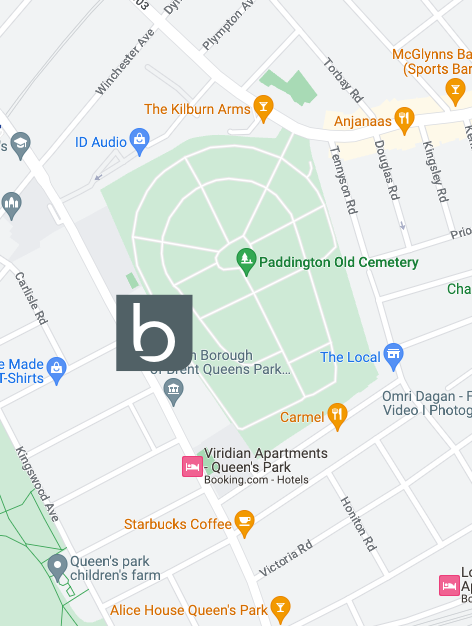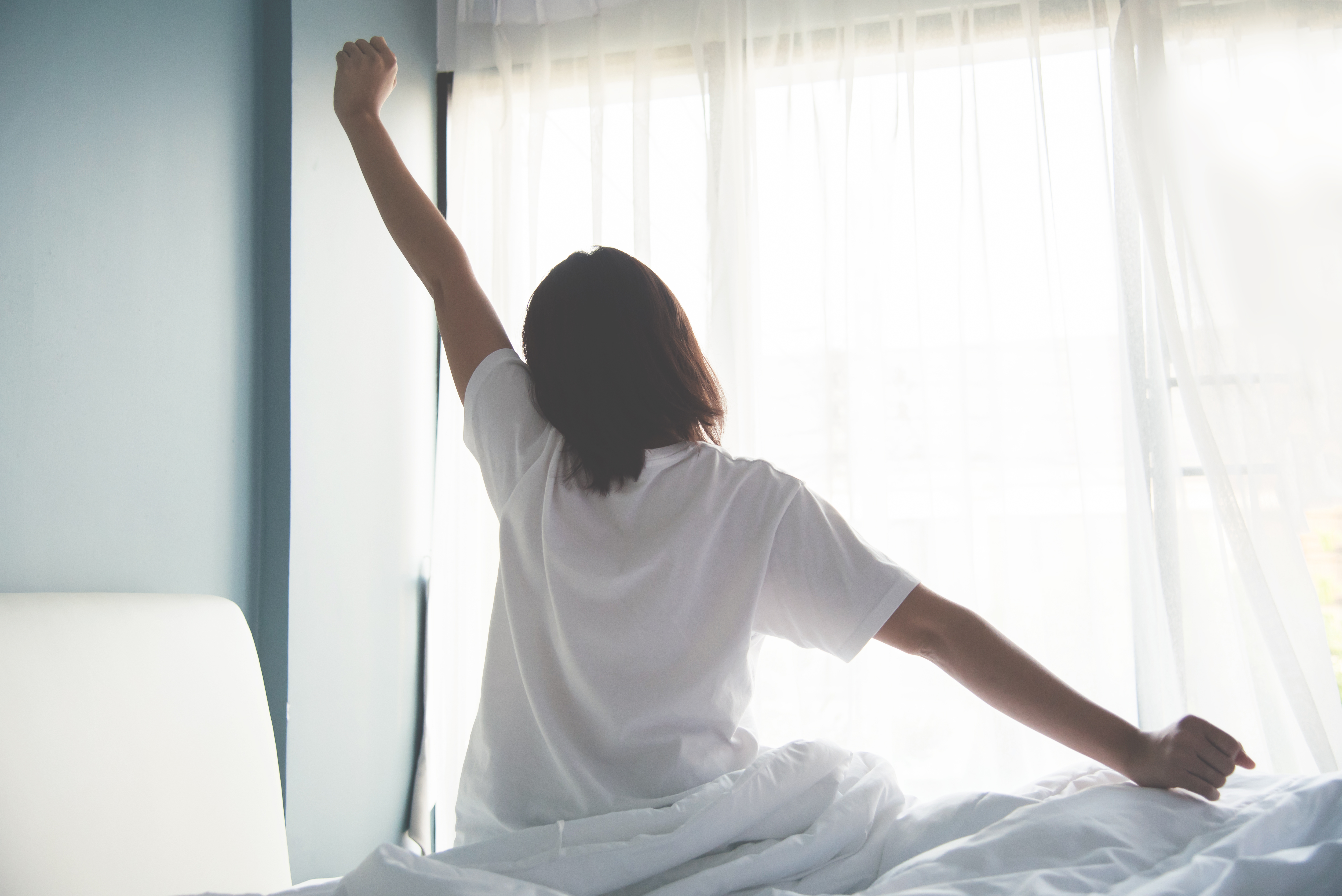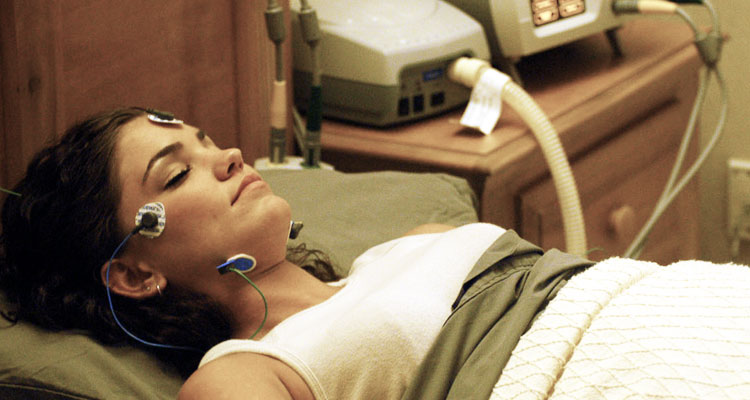
Close
Enquiry
Please see contact information below or complete the form and we will get in touch with you.

Parsons Green
3rd Floor Brigade House
8 Parsons Green
London
SW6 4TN

Queen's Park
2nd Floor
105-109 Salusbury Road
London
NW6 6RG

Jesse's House
8-10 Heathmans Road
Parsons Green
London
SW6 4TJ
The Importance of a Good Night’s Sleep

We all know that getting enough sleep does wonders for how we feel. But few of us realise that during sleep, the body is doing more than resting – it’s working to restore our physical and mental wellbeing. Alongside other essential elements such as nutrition, hydration and meditation – sleep is the cornerstone of a balanced rest and recovery program – a fundamental requirement in achieving and sustaining musculoskeletal health and wellness.
The importance of a good night’s sleep
We’ve all sacrificed sleep to fit more into our days. The immediate result is usually a blend of grogginess, grumpiness and irritability. If you continue to short-change yourself on sleep, you may experience further adverse affects on your brain’s ability to function in the short and longer term, such as:
- Decreased alertness, accuracy and performance
- Shortened attention span and concentration level
- Reduced creativity and innovation
- Impaired memory and cognition
- Reduced capacity to problem solve and make quality decisions
- Increased chance of weight gain
Chronic sleep deprivation can also be a significant contributor to a range of serious medical issues including: high blood pressure, diabetes, heart attack, stroke, obesity, and psychiatric problems such as depression and other mood disorders.

So for those who brag that they can “get by” on just a few hours sleep, perhaps some insights about the science of sleep will reveal that sleeping is far from unproductive. Indeed, it’s a crucial component of a healthy, productive, and high quality life. And for those of you who long to improve your sleep experience – read on for helpful tips and strategies.
The science of sleep
What does your body do while you’re asleep that is so important to health?
The Brain
Sleep is divided into two categories: rapid eye movement (REM) and non-rapid eye movement (nREM). The first phase of sleep is nREM, and it splits into four stages, each stage deeper than the last, and each followed by a shorter REM phase. Every total cycle lasts approximately 90 minutes and these cycles repeat throughout the night and into the morning. The average person should aim to have 5 or 6 sleep cycles each night.
REM and nREM are necessary for optimal health but they have very different effects on the body. During nREM sleep the body is healing – regenerating tissue, building bone and muscle, and strengthening the immune system. During the REM cycle the brain rejuvenates, processing and consolidating experiences associated with memories, emotions and learning.
In January 2014, The New York Times described the brain as playing the part of “mental janitor” during sleep, clearing the mind of excess “rubbish” and flushing out toxins that build up during waking hours. Similar to toxins that build up in the muscles after a workout, the brain becomes saturated with information during a full day of thinking. This produces what some researchers believe to be toxic by-products that can often prevent further processing. So the old maxim – to “sleep on it” – before you respond to an emotional or difficult situation, may just have some science behind it.
And if you still feel groggy and unrefreshed after more than 7.5 hours of sleep, you may have awakened between a sleep cycle – essentially breaking the cycle. To help you bounce out of bed, you may want to plan your sleep to wake up at the end of a 90-minute cycle.
Muscles
During sleep, the muscles in your body are at their most relaxed. This gives your body the chance to repair and rebuild your muscle tissue. Poor sleep can leave you sensitised to muscle overload from exercise or the postural stresses of life.
Digestive System
While you are sleeping and your body is immobile, your digestive system slows down dramatically. This allows the digestive system to rest and renew after converting food into the energy you need to go about your busy day.
Because the digestive system slows down so much during sleep, eating too much before bedtime will lead to that bloated feeling that might keep you awake and uncomfortable. Spicy and fatty foods can trigger acid production, which can flow back into the oesophagus and cause acid reflux/heartburn that will wake you up later in the night.
Alcohol is both a sedative and a stimulant, and too much alcohol or alcohol consumed too close to bedtime, interrupts the normal sleep cycle. Alcohol consumption causes the sleep cycle to be disrupted by jumping over the early sleep phase straight into deep sleep. As the alcohol metabolises (wears off) one reverts to the REM sleep where it is easier to wake up. Women metabolise alcohol more quickly than men, meaning they speed through the initial sedative effects of alcohol and typically wake up earlier or more frequently than men as a result.
Hormones
When you are awake, your body is stimulated by hormones including adrenaline and natural corticosteroids which kick-start important processes. When you sleep, these hormone levels drop and your body starts to produce human growth hormone (HGH), which promotes growth, maintenance and repair of muscles and bones. During this process, every tissue in your body is renewed. Regular sleep will ensure that your body can regulate hormone production, helping you remain alert during the day and sleep well at night. Sleep also help regulates the hormones ghrelin and leptin which help control feelings of hunger and fullness. When we are sleep-deprived, the production of these hormones is reduced and we may tend to eat more, potentially leading to weight gain.

The Skin
There is science behind the adage “beauty sleep.” During the day your top layer of dead skin is shed. While you sleep the metabolic rate of your skin speeds up and new skin cells grow and replace older cells. This process is important for repairing damage from pollution and UV rays and rejuvenating your skin. A lack of sleep disrupts this renewal process. We all know that when you skimp on sleep it shows on your face.
Immune System
During sleep your immune system releases certain agents that fight disease and help protect you from colds, flu and other ailments. Sleep deprivation suppresses the immune system, putting us at an increased risk of illness. When we are ill, we often feel an increased level of fatigue. This is the body’s way of encouraging you to get more sleep to enable your body to rest, fight the illness and sustain the battle.
How much sleep do you need?
Many studies have been conducted about the amount of sleep that is recommended for different age groups. Because we are unique in body composition, daily routine, genetic make-up and more, we have different needs for sleep. But certain principles can apply across the board.
Studies have shown that on average, the optimum amount of sleep for:
- children aged 0 to 11 is between 11 to 18 hours of sleep per night;
- children aged 12 to 18 is between 8.5 to 10 hours;
- adults is between 7.5 to 9 hours.
Sleep is highly beneficial for almost every part of your body and your mind. When you sleep, your body repairs itself, regulates vital processes and releases toxins so you can wake up feeling refreshed. With these restorative benefits in mind, be sure to get enough sleep. Your body, mind and overall state of wellness will thank you.
Source: Konnikova, Maria. “Goodnight. Sleep Clean.” The New York Times. The New York Times, 11 Jan. 2014. Web. 15 Dec. 2014.
[su_box title=”Tips & Techniques” box_color=”#44c0b8″ title_color=”#ffffff”]You can create a healthy sleep pattern that will serve you well throughout your life. Here are some of the most important and effective tips and techniques:
Manage your rest schedule
It helps a great deal if you can maintain a regular sleep schedule. Consider a nap to make up for lost sleep. Pushing yourself relentlessly throughout the day over-stimulates your nervous system, leading to that ‘tired but wired’ feeling when you get into bed. If you can take a 5-minute break every 90 minutes, your sleep at night will be deeper and more restful.
Manage light exposure through the day and evening
In order to boost production of the sleep hormone melatonin, it helps to increase light exposure (especially outdoors) during the day, and then aim for an ‘electronic sundown’ 60-90 minutes before getting into bed. Spending too much time in front of technology before getting into bed overloads the ‘working memory’ of the brain and leads to noisy thought-filled sleep. To be avoided whenever possible!
Manage your sleep environment
Your bedroom should only be for sleep and “fun” – a tranquil place to retreat and restore. Create a relaxing environment by removing TVs, cell phones and computers from bedrooms. A quiet, dark room at a cool, comfortable temperature also promotes better sleep.
Manage food and beverage intake
Did you know that skipping breakfast or eating too late after rising (more than one hour) suppresses the production of melatonin (needed to help you sleep) and causes the body to produce stress hormones such as adrenaline and cortisol? For some, eating breakfast is challenging but you can break the cycle by starting small – a few almonds, a piece of toast with nut butter, or a small bowl of natural, full-fat yoghurt with a sprinkling of nuts and honey. Including a source of protein will optimise melatonin production. Remember it helps to avoid big meals too close to bedtime. Also, beware of the impact of alcohol and caffeine on sleep. And aim to drink 2 – 3 litres of water a day, as dehydration creates restless muscles and ‘scratchy’ sleep.
Manage stress and intrusive thoughts
If stress and worry are waking you up – learn to manage your thoughts through mindfulness meditation and deep breathing. Write down your worries or ‘to do’ lists before going to bed (then let go!) and practice gratitude, thinking of all of the positive things that happened in your day as you drift off to sleep.
Thank you to Dr Nerina Ramlakhan Sleep Expert who shared the above tips. For more information about Nerina – check out her website https://www.drnerina.com She has also written a helpful book for those looking to improve sleep quality: Tired but Wired, The Essential Sleep Toolkit
[/su_box]
SaveSave

